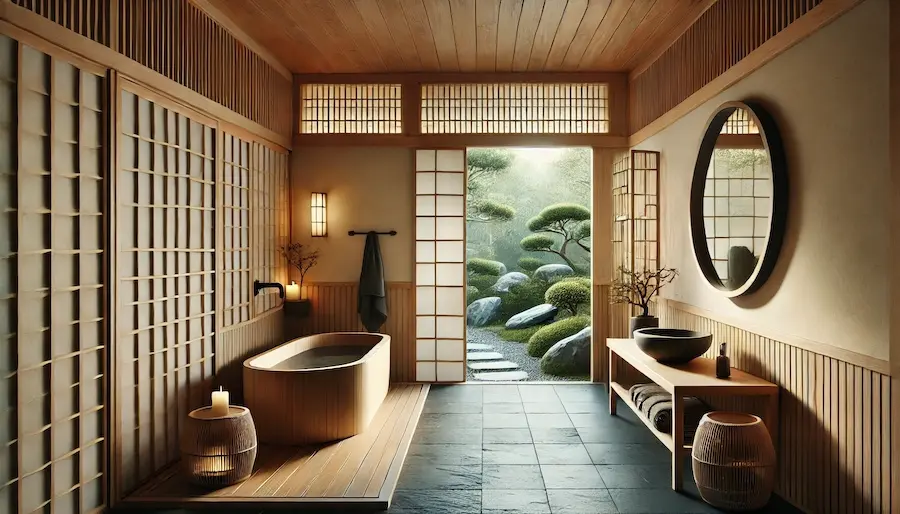Japanese bathrooms are renowned for their minimalist design, natural materials, and emphasis on creating a serene, spa-like atmosphere. This article explores their history, key features, applications, and considerations for incorporating Japanese design elements into your bathroom.
History and Origins of Japanese Bathrooms
Japanese bathing culture has deep roots, with communal baths known as “sento” and natural hot springs called “onsen” playing significant roles in society. These traditions have influenced modern Japanese bathroom designs, emphasizing cleanliness, relaxation, and a strong connection to nature.
Key Features of Japanese Bathrooms
To achieve a Japanese-inspired bathroom, consider incorporating the following elements:
- Ofuro (Soaking Tub): A deep, compact soaking tub made from materials like hinoki wood offers a relaxing bathing experience.
- Natural Materials: Utilize wood, stone, and bamboo to create a warm, organic feel that connects the space to nature.
- Minimalist Design: Embrace simplicity with clean lines and uncluttered spaces to promote tranquility.
- Wet Room Concept: Design the bathroom as a waterproofed area without separate shower enclosures, allowing for an open and seamless flow.
- Natural Light: Incorporate large windows or skylights to enhance the sense of openness and connection to the outdoors.
Applications of Japanese Bathrooms
Japanese bathroom designs can be applied in various settings:
- Residential Homes: Transform your bathroom into a personal retreat by incorporating Japanese design elements that promote relaxation and well-being.
- Spas and Wellness Centers: Create a serene environment that reflects traditional Japanese bathing practices, enhancing the overall experience for clients.
- Hotels and Resorts: Offer guests a unique and calming atmosphere by integrating Japanese-inspired bathroom designs into accommodations.
Considerations When Designing a Japanese Bathroom
When planning a Japanese bathroom, consider the following:
- Space Utilization: Optimize the layout to accommodate features like the ofuro and ensure a harmonious flow within the space.
- Material Selection: Choose high-quality, natural materials that can withstand moisture and contribute to the desired aesthetic.
- Maintenance: Ensure that the design allows for easy cleaning and upkeep to maintain the minimalist and serene environment.
Conclusion
Incorporating Japanese design principles into your bathroom can create a tranquil and aesthetically pleasing space that promotes relaxation and well-being. By focusing on natural materials, minimalist design, and traditional elements like the ofuro, you can transform your bathroom into a serene retreat inspired by Japanese culture.
